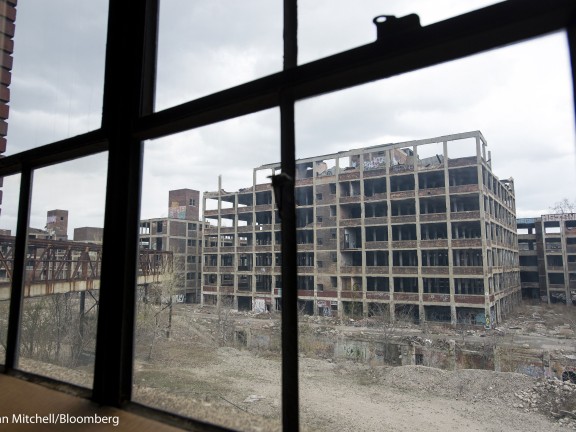Are Judges Displacing Elected Officials Fixing Troubled Cities’ Finances?

Voters in cities elect mayors and councils to run their municipalities. What they didn’t count on were the cases—like in Detroit and the three California cities that have sought federal bankruptcy protection—in which elected officials helped run their communities into the ground. Thus we have the new breed of activist bankruptcy judge, who may use a Chapter 9 case as the platform not just for reorganizing municipal debt, but also for helping set the stage for turning distressed cities around.
We saw this idea expressed at a recent symposium, “Chapter 9 and Alternatives for Distressed Municipalities and States,” that the Volcker Alliance co-sponsored with Federal Reserve Bank of New York and the George Mason University State & Local Government Leadership Center. In July, the center’s director, Frank Shafroth, wrote in his monthly Governing Magazine column that the US judiciary “has assumed the most critical role and responsibility for municipal and urban policy. It is increasingly displacing legislative and executive branches in addressing the long-term solvency of some of the nation’s oldest cities.”
The event at the New York Fed featured several current and former mayors, US Treasury and Federal Reserve officials and three leading federal bankruptcy judges, Steven Rhodes, who oversaw Detroit’s bankruptcy case; Thomas Bennett, who was in charge of the bankruptcy case of Jefferson County, Alabama; and Christopher Klein, who is hearing Stockton, California’s Chapter 9 case. Shafroth found that Bennett addressed the importance of “long-term municipal sustainability” as a key outcome to any successful municipal distress proceeding -- in addition to an effective restructuring of a city or county’s debt. Rhodes spoke of the uncertain future of this generation of cities and counties that emerge from municipal bankruptcy given the lack of a federal role in achieving “long-term sustainability,” that is, a plan that entails a structuring of a pensions and debt service.”
Indeed, University of North Carolina-Chapel Hill law professor Melissa Jacoby, an expert on municipal bankruptcy, on July 27 posted a new paper, “Federalism Form and Function in the Detroit Bankruptcy,” in which she contends that a “Detroit Precedent” has emerged from the Chapter 9 case involving Michigan’s biggest city that was overseen by Rhodes.
Citing Rhodes’s active role not just in overseeing Detroit’s restructuring of debt and pension obligations, but also in helping set a new course for the rehabilitation of municipal services, Jacoby concluded that “the `Detroit Blueprint’ is sure to have a ripple effect” in other distressed communities that defies common wisdom on the more limited role federal bankruptcy judges were long thought to play in cases they hear. One can only hope that one of the reforms judges in the wake of Rhodes will demand is greater transparency and honesty in municipal budgets, as the Volcker Alliance recommended in its recent report, “Truth and Integrity in State Budgeting: Lessons From Three States.”
With an increasing number of US cities facing rising financial stress from obligations such as pensions, retiree health care, crumbling infrastructure, and weakening state and federal aid, bankruptcy judges – at least in the states that allow municipalities to file – may become the critical dealmakers that troubled cities and counties need when their own officials have failed in their fiduciary role.